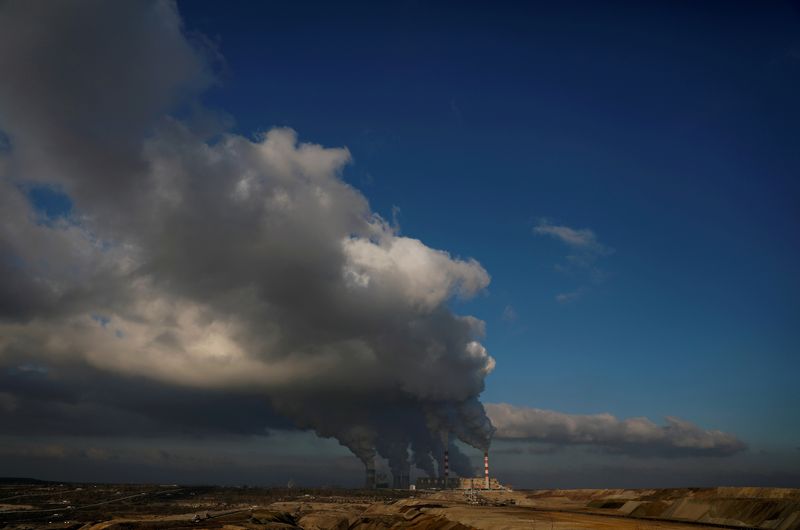LONDON (Reuters) - Thirty of the world's largest financial institutions are undermining their commitment to cutting carbon emissions by lobbying against climate regulation and by funding new fossil fuel projects, according to a report published on Friday.
The report, from London-based energy and climate think-tank InfluenceMap, found that all 30 institutions are members of industry associations "that have consistently lobbied to weaken key sustainable finance policies" in the European Union, Britain and the United States.
These policies are designed to boost transparency around financing environmentally harmful activities including fossil fuels.
One well-known activist investor and climate campaigner said the behaviour amounted to "greenwashing".
"Any bank making a Net Zero promise whilst actively lobbying against necessary climate regulation – such as mandatory disclosure of borrowers' emissions and climate action plans – is greenwashing," Chris Hohn, the billionaire founder of hedge fund TCI, said in a quote provided by InfluenceMap.
"Shareholders should vote against the directors of banks who are hiding their exposure to climate risk."
Many banks have committed to a 'Net Zero' 2050 target and several have promised to reduce their direct greenhouse gas emissions, as well as those of their clients, to keep the rise in global temperatures from pre-industrial levels below 1.5 degrees celsius.
Those that are members of the United Nations-convened Net Zero Banking Alliance, which includes global banks such as JPMorgan (NYSE:JPM), Deutsche Bank (DE:DBKGn) and HSBC, have also begun to announce specific targets for lowering their financed emissions in industries such as oil and gas by 2030.
Some experts have called the targets a good start and argue that lenders will need to continue working with fossil fuel giants during the energy transition. Many activists say the pledges do not go anywhere near far enough.
InfluenceMap said that though many banks have committed to substantial decarbonisation targets, few have adopted "meaningful fossil fuel exclusion policies".
It calculated that of the 30 financial firms it examined, their banking arms collectively facilitated at least $740 billion in primary financing to fossil fuel-related businesses in 2020 and 2021. This was mostly through corporate lending and bond underwriting.

"These global financial institutions have significant economic and political influence, and they are delaying action that is essential to respond to the climate crisis," said Eden Coates, the report's author.
"If they are serious about achieving their net zero targets, they should set concrete and actionable short-term targets across all aspects of their operations."